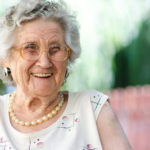Keeping Up With Your Changing Health Needs While Aging

Anyone hitting their twenties and thirties will suddenly realize that they can’t eat, drink, or exercise quite like they did in their adolescent years. Things may not come as ‘easy’ to you as they did when you were a kid, but it’s still important to keep track of your changing physical needs as an adult. Here’s how you can set yourself up for vitality beyond your middle-aged years.
Keep Your Stress Levels Low
In 2017, surveys showed that people aged 72 or older had much lower stress levels than the younger generations. Are they living to ripe old ages because they’re experiencing less stress? Or are they less stressed because of their ability to reach retirement age fairly comfortably? Either way, constant stress, and anxiety have been shown to physically age you. Don’t sweat the little stuff, and seek stress management support. Changing the way you view stress can drastically improve your life. A Harvard research study found that viewing stress as helpful rather than harmful can not only improve your performance, but also reverse the physiologic changes brought about by stress.
Hold On To Some ‘Healthy’ Stress
Although you want to avoid stressing about everything, there is such a thing as ‘healthy’ stress, called ‘eustress’. Some examples of eustress include traveling, learning new skills, adapting to life changes, or falling in love. Studies have shown that eustress strengthens our emotional and mental reactions to bigger, negative stresses.
Work Towards and Maintain A Healthy Weight
As you get older, excess weight is easier to put on. It’s also harder on your organs, like your heart, lungs, and kidneys. Avoid fad weight loss programs, and aim for slow-but-steady progress with a weight loss program that focuses on holistic therapy with nutrition, lifestyle, and exercise. The goal is to keep the weight off, not cause wild fluctuations. Remember your nutritional needs change with age, so work with your doctor and fitness experts to find your ideal diet.
Create an Exercise Plan That Works Long-Term
If your exercise regimen of choice is intense enough that you will not be able to do any of it at age 50, or 60, or 90, then you should learn to incorporate some gentler techniques. Take up lifelong activities like swimming, light weight lifting, or yoga alongside your usual regimen.
Lastly, create a personal development plan for yourself. Once people stop learning, interacting, and striving for something in life, they can become complacent and fail to thrive. Elderly folks who live long cite interest and activity as part of what keeps them going. Feed your sense of curiosity and you might just live a longer, happier life. Know and nurture your purpose-your reason to get up every morning.






